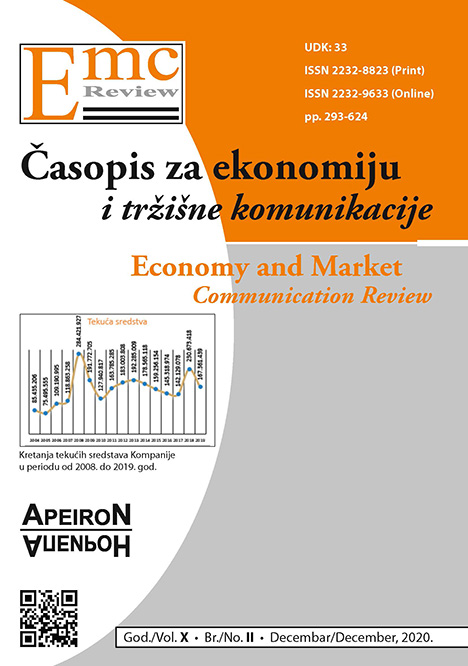AVAILABILITY OF RSI IN BITCOIN TRANSACTIONS: A REVIEW FROM THE PERSPECTIVE OF BEHAVIORAL FINANCE
DOI:
https://doi.org/10.7251/EMC2002378BAbstract
BITCOIN has a different criterion than traditional systems that pay in states’ currencies. This payment system is a complex scheme designed to facilitate the transfer of value between the parties. In this study, firstly, brief information about technical analysis, BITCOIN and behavioral finance is given. Then, in the literature part of the study, studies on BITCOIN prices in the context of behavioral finance and technical analysis are given. In this study, it is examined Relative Strength Index (RSI) availability in Bitcoin transactions and evaluate in the context of behavioral finance findings. For describing the risk of trading in Bitcoin, were chosen Value at Risk (VaR) ratio. In application part of the study it is supposed 1 Bitcoin “Buy” orders were opened when RSI was under 30 and closed when RSI was above 70. And also, 1 Bitcoin “Sell” orders were opened when RSI was above 70 and closed when it was under 30. All obtained data from trades was used for revealing results on accuracy, total profitability. Positive trades were divided by total trades and multiplied by 100 for calculation of accuracy. Period of research is 2015-01-01 till 2019-08-31. As a result of the study we see the effects of biases in Bitcoin transactions. It is observed the examples of conservatism, over and underreaction, status quo effect and loss aversion. And also it is determined in this study that RSI works better in stable market when traders play safer. In other words, RSI works better when conservatism wins over overreaction.
